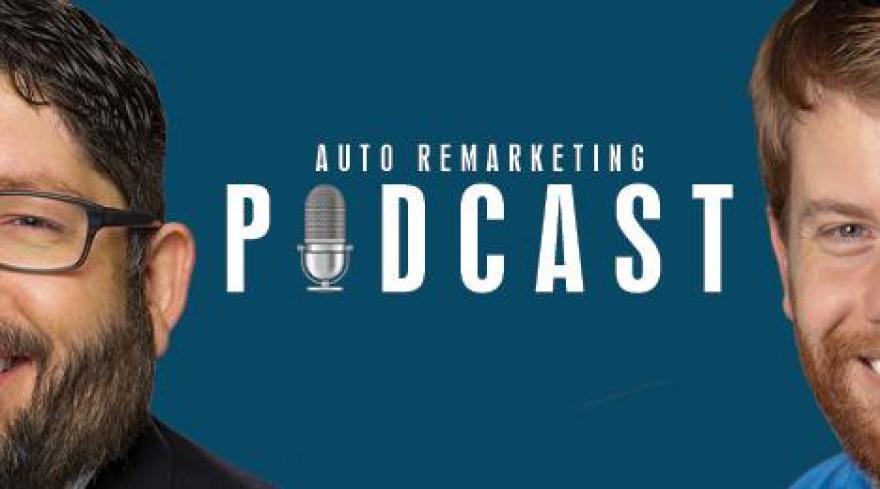The economy has held up very well recently given the unemployment rate reaching 3.5% recently, but it’s getting difficult to determine which direction the economy is headed in the near future.
According to a recent Duke University/CFO Global Business Outlook survey, 53% of chief financial officers believe the U.S. may enter a recession prior to the 2020 presidential election. In addition, two-thirds believe a downturn will happen by the end of next year.
Similarly, year-over-year real GDP growth weakened from its Q2 2018 level of 4.1%, which marked some of the strongest GDP growth in recent memory thanks to a healthy tax cut. Since then, GDP has dropped to a two-year low, and Fed officials are thinking it may fall to a three-year low.
This concern has also translated to the automotive market, where independent dealers particularly are growing increasingly skittish about prospects for sales growth.
Independent auto dealers are mirroring the mood of CFOs, with only 30% expecting economic conditions to improve during 3Q 2019, down from 38% in the first half of the year, and 42% in 4Q 2018.
Similarly, only 18% said they plan to expand their business in the coming quarter, down from 33% in the first half of 2019.
When it comes to retail sales, only 37% of independent auto dealers indicated they anticipated their dealership’s retail sales to grow during the third quarter, down from 51% in the first half. Also, many dealers are expecting store traffic to decrease. In fact, only 38% expect traffic to increase during the third quarter compared to 46% who expected traffic increases in the first half.
The economy has pushed many independent dealers to embrace more targeted marketing strategies.
Many independent dealers indicated they have decreased Q3 2019 marketing spending in comparison to the previous year. However, this reduction in marketing expenditure isn’t expected to be as exaggerated this year in their digital marketing efforts.
This comes as no surprise, as independent dealers — similar to franchise dealers — recognize the importance of connecting with their customers in online channels. It is yet another indicator of the emphasis digital retailing continues to have on the industry.
In a digital retailing experience, the online car buying experience includes the ability for consumers to research vehicles, view real-time inventory, arrange financing, and ultimately complete the purchase. This results in a more seamless transaction to help mitigate friction once at the dealership.
As part of this process, connecting with the right technology companies to help showcase inventory and offers online are critical to enhancing the shopper’s online experience. Also, it is important for independent dealers to engage their customers early in the shopping phase with respect to financing options.
Scott Lilja is senior vice president of member services at the National Independent Automobile Dealers Association. He can be reached at [email protected]. Jennifer Reid is the vice president, automotive marketing and strategy leader for Equifax. She can be reached at [email protected].
It’s now past Labor Day weekend. Much of the year already has passed, and the holiday season will be arriving soon enough.
For dealerships that began 2019 with the intention of increasing in-store training, GWC Warranty compiled strategy to help managers overcome four primary obstacles they might have encountered delaying those educational improvements.
“Sure, your main goal is to sell cars. That goes without question,” GWC Warranty said in a company blog post. “Without finding ways to keep things fresh and to continue to evolve, however, you stand to risk falling behind the competition.
“You probably already understand this and therefore see the value in dealership training, but it’s easy to watch the busy days, weeks and months fly by without pursuing the training your dealership needs,” the company continued.
So, without further delay, here’s how GWC Warranty suggested overcoming those training delays.
Not enough time
GWC Warranty acknowledged this is the easiest excuse when it comes to avoiding a training program, but the company said it’s also the easiest to overcome.
“There are countless options for online training that you can complete on your own time,” GWC Warranty stated. “Convenience is just the first step though. Setting deadlines is on you.
“Give you and your team goals to complete certain coursework and you can begin holding each other accountable to chip away at the training iceberg,” the company continued.
Not enough money
GWC Warranty also recognized training can be expensive. But the company also insisted that it doesn’t have to be.
“Looking in unexpected places for on-demand training (like your vehicle service contract provider) might be your ticket to affordable — or even free — training resources,” GWC Warranty said.
“A quality VSC provider will value your loyalty and be able to provide training for your entire dealership that will be able to help you be more successful and efficient in every aspect of your business,” the company added.
Not enough people
Many independent and buy-here, pay-here dealers have a small team. Perhaps, the store is literally a one-man band with the operator doing every part of the store operations singlehandedly.
“You think training would be a waste of your time, right? Wrong,” GWC Warranty said. “Small teams need training that can maximize success and efficiency more than any others.
“If you’re running a small shop, you need to maximize on all your resources,” the company continued. “Learning best practices, pro tips and processes that diversify your skills could actually be the best use of your time.”
Not enough opportunity
Finally, GWC Warranty accepted the situation that some operators might strictly evaluate strategies based on figures, and they’ve historically had trouble quantifying the opportunity training holds.
GWC Warranty proposed, “When overcoming this objection, think about if you had two more upsells in the F&I office each month. Or if you sold five more cars. Or if you learned about a new product that could double F&I revenue.
“Unless you train on the processes and methods you can employ to achieve these goals, you’ll have no path to get there,” the company went on to say. “There is always opportunity and room for improvement in your dealership, and training is the road to get there.”
The Tricolor Auto Group in Texas and the Ganas Auto Group in California are again using technology to reach potential Hispanic customers.
LivePerson Automotive, a division of global conversational commerce solutions provider LivePerson, recently launched its first WhatsApp implementation for an automotive dealer group, rolling out web and mobile messaging for Tricolor and Ganas, which describe themselves as mission-driven to sell and finance high-quality, certified used vehicles through its premium brands, utilizing advanced data analytics and technology to advance financial inclusion to a highly underserved market.
Using the LiveEngage platform, Tricolor and Ganas are looking to provide end-to-end customer conversations using a variety of messaging channels, making it simple for consumers to connect with the dealership groups.
“One of Tricolor Auto Group’s goals is to make it easier for Spanish-speakers to buy a car and get reliable, trustworthy service — both of which can be complex, confusing experiences,” said Mauricio Delgado, Tricolor’s chief product and strategy officer.
Adding LivePerson Automotive’s messaging solutions for car shopping and service, including WhatsApp as a messaging channel, can give the bilingual concierge agents at Ganas the opportunity to connect with shoppers and owners in a messaging channel heavily utilized worldwide. Consumers familiar with the Ganas brand can opt in to message with agents through the WhatsApp icon found on their website on both desktops and mobile devices.
The company highlighted that WhatsApp’s rich messaging capabilities can make it an excellent fit for automotive shopping, where dealerships can benefit from sharing resources like photos, vehicle history reports, trade valuations and even credit applications with shoppers directly in messaging conversations.
“WhatsApp is the go-to messaging application in the Latino community,” Delgado said. “We knew we needed a strong WhatsApp Business service provider to help us engage with our consumers in the communications channels they were already using. LivePerson Automotive gives our customers so many options for messaging with us, from web and mobile messaging to Facebook Messenger and WhatsApp.”
Mark Schmitz, Tricolor’s director of customer advocacy, said that in addition to its breadth of messaging channels, Tricolor chose the LiveEngage platform over other messaging solutions because of its rich capabilities for business development centers like his Concierge group at Tricolor.
“LivePerson’s reporting, analytics, sentiment analysis, and intent analysis technologies are robust,” Schmitz said. “As we extensively leverage data to provide the best experience to our customers, LiveEngage will help us bridge conversational analytics to our quantitative data and make the shopping experience more beneficial for our customers and more productive for our agents.”
LiveEngage conversation management capabilities, designed especially for contact centers like automotive BDCs, include skills-based routing, co-browse screen sharing so agents can help consumers more easily navigate inventory, and digital retailing tools, along with many agent-specific capabilities to make BDCs more efficient and productive.
“The Tricolor team’s mission is about much more than just selling a car. They truly want to build relationships with the Latino community and provide a level of service and support that genuinely transforms their buying and service experience,” said Denise Chudy, LivePerson Automotive general manager. “We’re proud to help them achieve these goals by connecting shoppers and Tricolor through the LiveEngage platform.”
To learn more about LivePerson Automotive’s conversational commerce platform, go to livepersonautomotive.com.
The National Independent Automobile Dealers Association is looking to give members all the resources they need to be compliant with the state and federal regulations that oversee their retail and financing operations.
As a result, NIADA recently formed a strategic relationship with ComplyNet, a provider of compliance solutions in the automotive industry, to help independent dealers create a culture of compliance through a new compliance management system.
The NIADA CMS, powered by ComplyNet, is custom-tailored for independent dealerships of all sizes, providing the tools they need to achieve compliance and mitigate risk in the areas of sales, finance, environmental health and safety and information security.
“As an industry, it is important for auto retailers to demonstrate a culture of full compliance at the dealership level,” NIADA chief executive officer Steve Jordan said in a news release. “Trial lawyers, courts and regulators are more interested now than ever in finding dealers who miss the mark on compliance and consumer protection.
“We are confident that independent dealers who fully use the capabilities of the NIADA CMS across their employee base will be much better suited to understand and comply with the many legal and regulatory requirements of the used vehicle industry,” Jordan continued.
The association highlighted the NIADA CMS can provide role-based online training, electronic policy sign-off and other valuable resources with dynamic dashboards, allowing the dealership to continuously track compliance goals.
ComplyNet has provided compliance solutions to the automotive industry for more than 25 years, developing a cloud-based compliance management system for dealerships to achieve regulatory compliance, loss control and risk mitigation.
“NIADA’s commitment to providing affordable and easy to use compliance solutions for its members is a testament to its leadership team,” ComplyNet president and general counsel Adam Crowell said.
“We look forward to working with independent dealers to maximize their profits by reducing their risks of losses, injuries, fines and lawsuits through the compliance management system and other online and on-site services,” Crowell went on to say.
For more information, visit niadacompliance.com.
Operators might have some knowledge about cloud computing, but Selly Automotive founder and chief executive officer Zach Klempf went into great detail about what this technology can do for dealerships, especially independent stores looking to keep costs under control.
Klempf also chatted with Nick about how independent dealerships can reach younger demographics to unlock sales now and down the road.
The full episode can be found below.
Download and subscribe to the Auto Remarketing Podcast on iTunes or on Google Play.
You can also listen to the latest episode in the window below.
Catch the latest episodes on the Auto Remarketing Podcast homepage and on our Soundcloud page.
Please complete our audience survey; we appreciate your feedback.







